
All About Conures

Conures
Vital Statistics
Body length: 9-12 inches
Body weight (most): 80-200 grams
Age of sexual maturity: 1-3 years
Maximum life span: 35 years
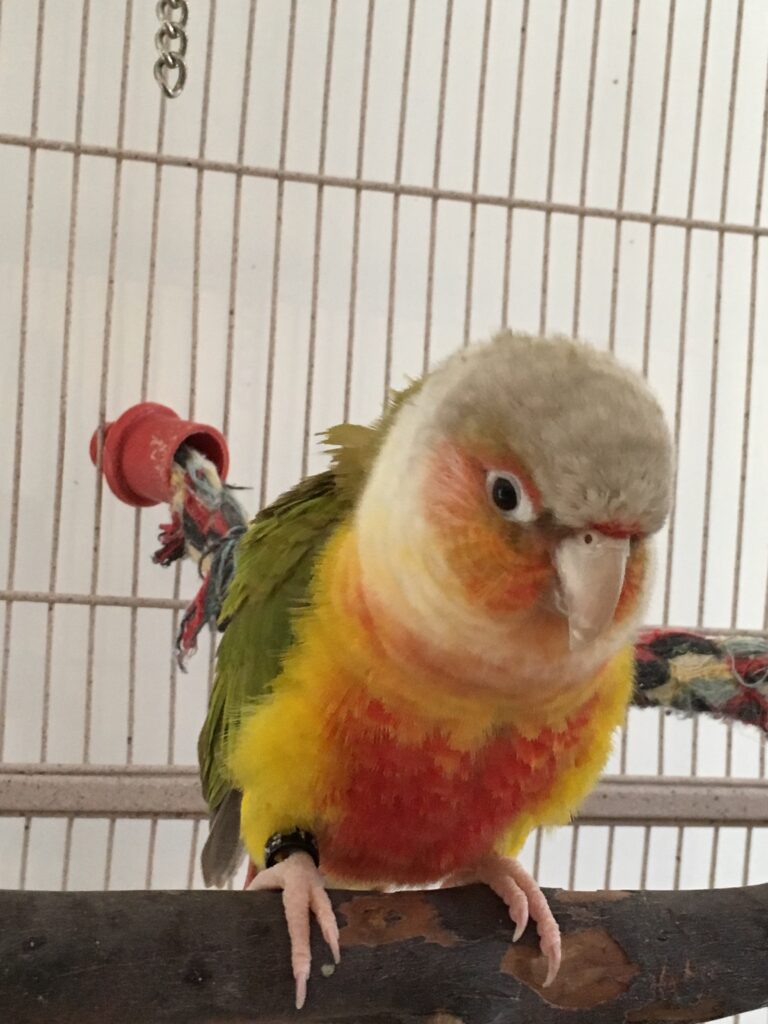
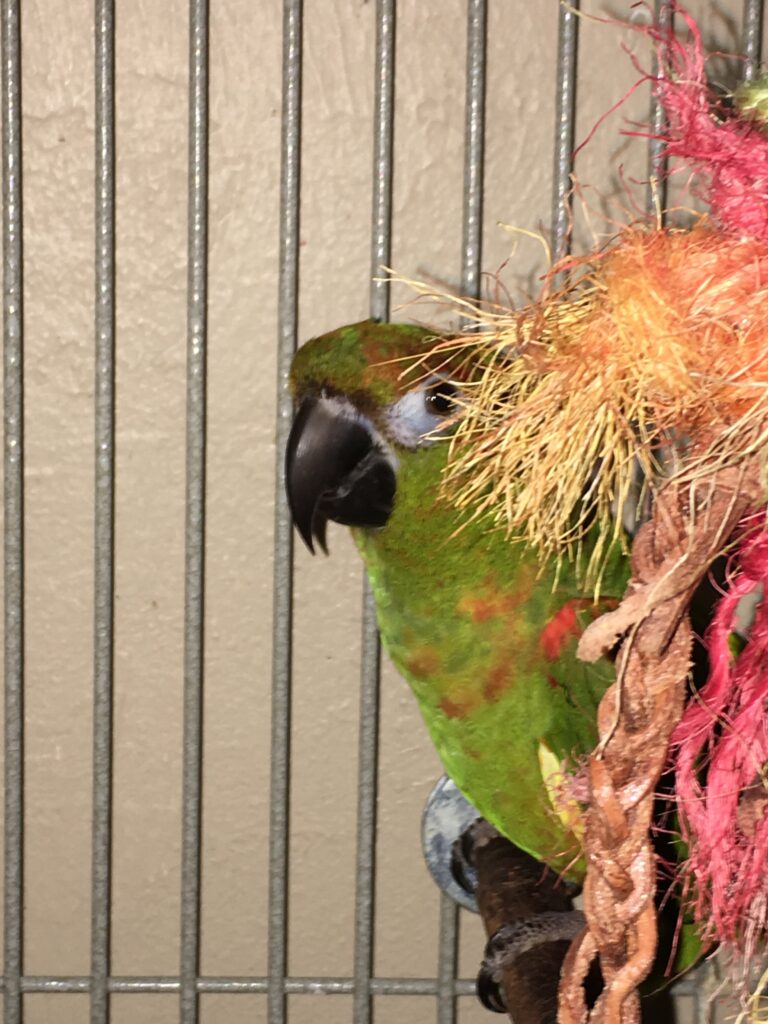
What to Expect from Your Conure
Conures are usually gregarious, playful, animated birds that enjoy and seek attention. Some conures may be considered short-tempered, and their noise level can be irritating. The less common dusky and green-cheeked conures are somewhat quieter than the more familiar jenday, sun, mitred or half-moon conures. Conures generally have a cavalier attitude about investigating anything new in their environment; thus, they often suffer from injuries. These birds are generally poor talkers, but they can be very vocal in the early morning and late afternoon.
What Do Conures Do All Day?
Conures are playful and easily amused with simple toys. They often lay on their backs and chew at their toes or may play hide-and-seek with a towel or brown bag in their enclosure. Because they love to chew, any toys must be free of toxic metals, hooks, sharp objects or small, easily consumed components. Providing chew toys or fresh-cut branches from nontoxic, pesticide-free trees is recommended for conures. Check with your veterinarian for recommendations on locally available safe trees.
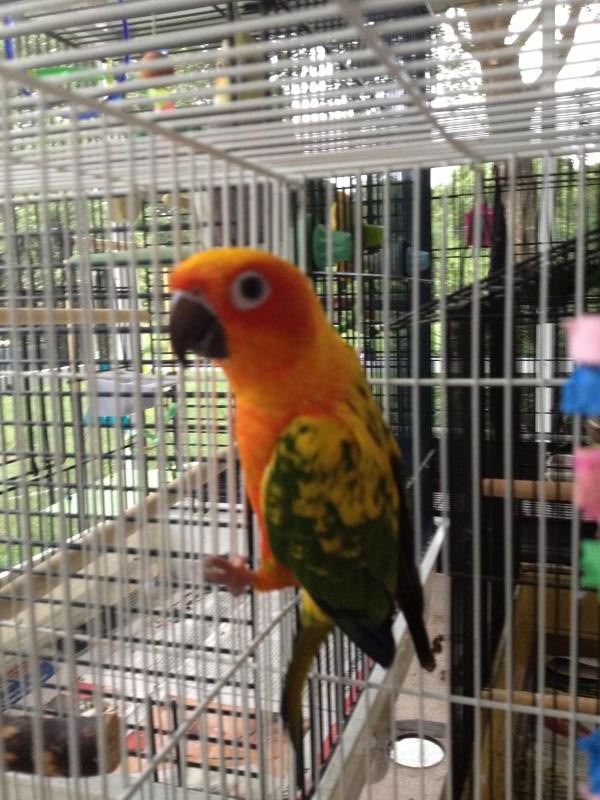
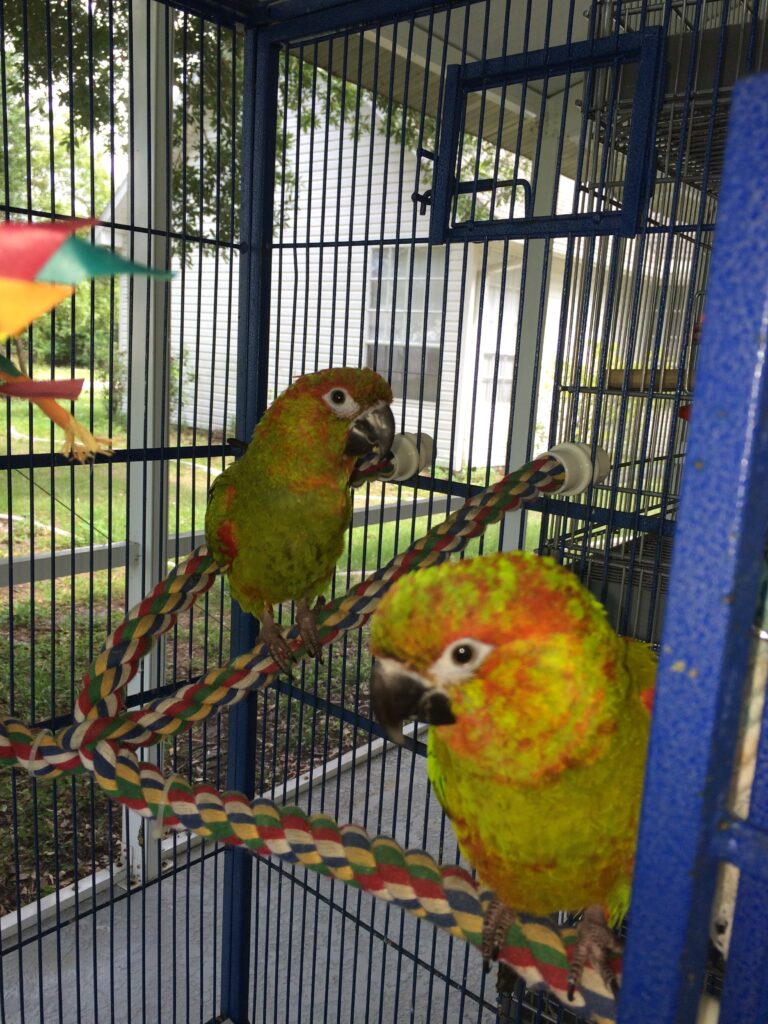
Is Your Conure a Male or a Female?
It is difficult to reliably distinguish a male from a female conure based on physical characteristics; therefore, endoscopy or laboratory methods must be used for sex determination in breeding facilities. Conures are prolific breeders and the offspring are easy to hand-raise.
What Your Vet Looks For in a Healthy Conure
Dry, Open Nares
Smooth Beak
Clear, Bright Eyes (No Discharge)
Alert, Erect Posture
Smooth, Bright Feathers Without Color Breaks, Transparency or Ragged
Edges
Body Free of Lumps and Bumps
Even, Reptilian Pattern on the Feet and Nails of Appropriate Length
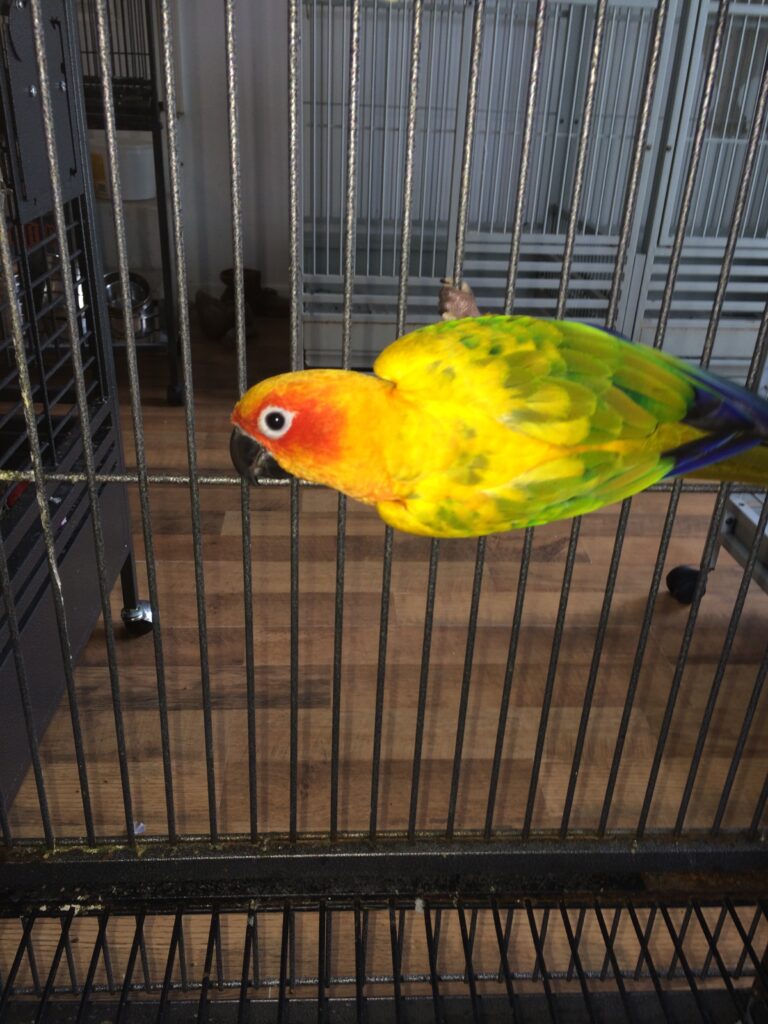
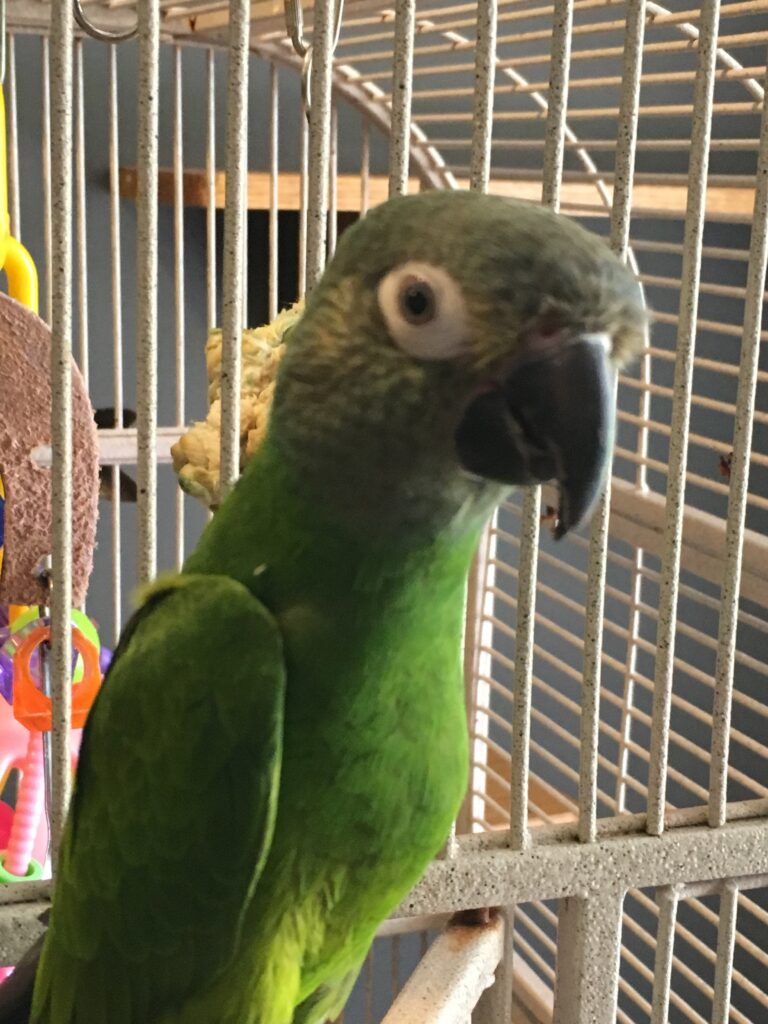
Are Conures Tame?
Young, hand-raised conures adapt readily to new surroundings and handling procedures. They should be exposed early in life to novel situations (car travel, hospital visits, multiple visitors in the household, other household pets) so that they are well adjusted to these events. Discipline, leadership, patience, hooding (covering the head), a sense of ritual and the offering of rewards are necessary to modify the behavior of conures. Even then, they are not completely trustworthy and may bite when they are angry or don’t get their way.
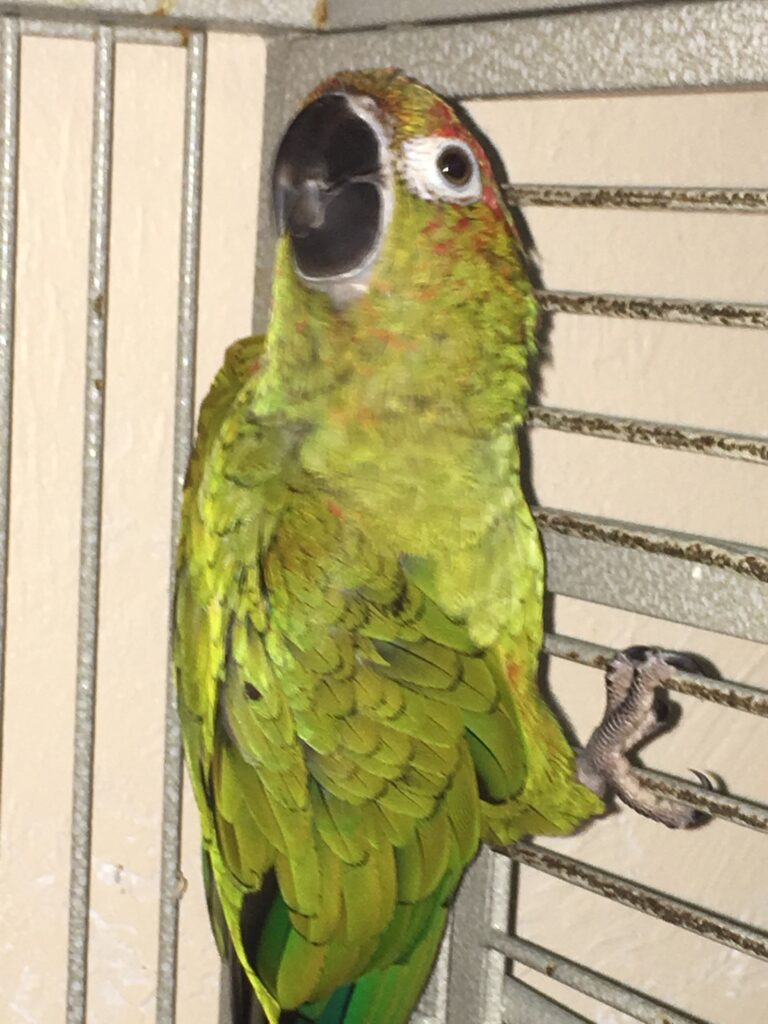
How to Identify Your Bird
Two methods used to permanently mark companion birds for identification purposes are tattoos and microchips (both are injected under the skin). Individually number leg bands are not reliable for identification. Every bird has a unique scale pattern on the feet. Photographs of the feet (updated periodically as the bird ages) can be maintained in the bird’s record to confirm its identity and to prevent fraud that can occur with other techniques.
Housing for your Conure should:
- be as large as possible.
- be clean, secure, safe and easy to service.
- be constructed of durable, nontoxic materials.
- contain variable-sized perches made of clean, nontoxic, pesticide-free tree branches.
- have food and water containers placed at opposite ends of the enclosure.
- avoid having perches located directly over food containers.
- offer occasional opportunity for protected outdoor exposure to fresh air, sunlight and exercise.
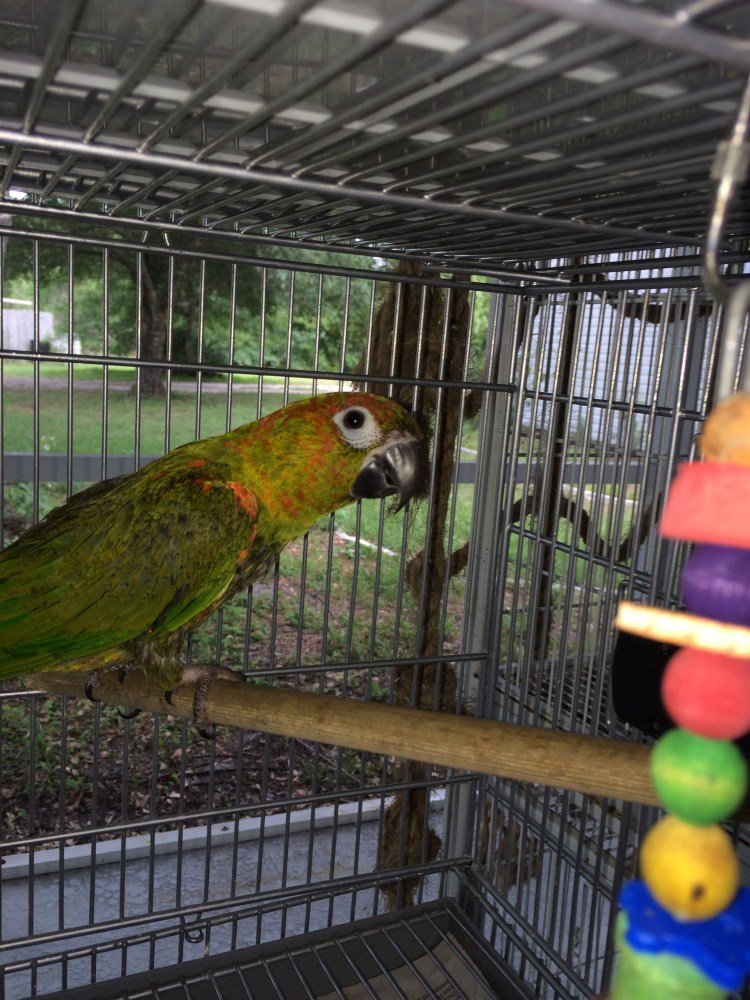
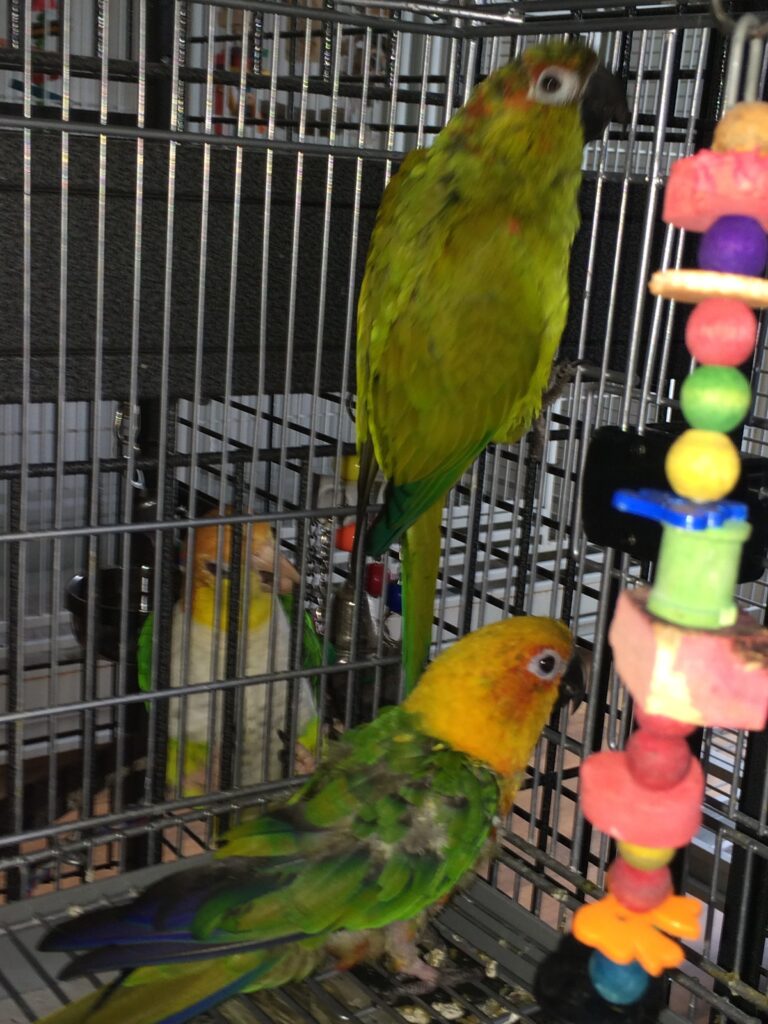
Conures are very curious and will investigate anything new in their environment. That is why it is important to prevent their access to:
ceiling fans, hot cooking oil, Teflon-coated items (overheated), leg chains, sandpaper-covered perches, tobacco and cigarette smoke, chocolate, avocado, salt, alcohol, toxic houseplants, pesticides, toxic fumes, easily dismantled toys, dogs, cats, and young children, cedar, redwood and pressure-treated wood shavings, sources of lead or zinc.
Most Common Problems with Conures
- Behavioral problems
- Feather and skin disorders
- Injuries
- Black splotches in feathers (malnutrition)
- Bleeding syndrome
- Bacterial infections
- Chlamydiosis
- Polyomavirus
- Papillomatosis
Many common disease conditions in conures are often the result of malnutrition. Visiting your avian veterinarian for routine health checks will help prevent many diseases and support you in having a long, satisfying relationship with your conure.
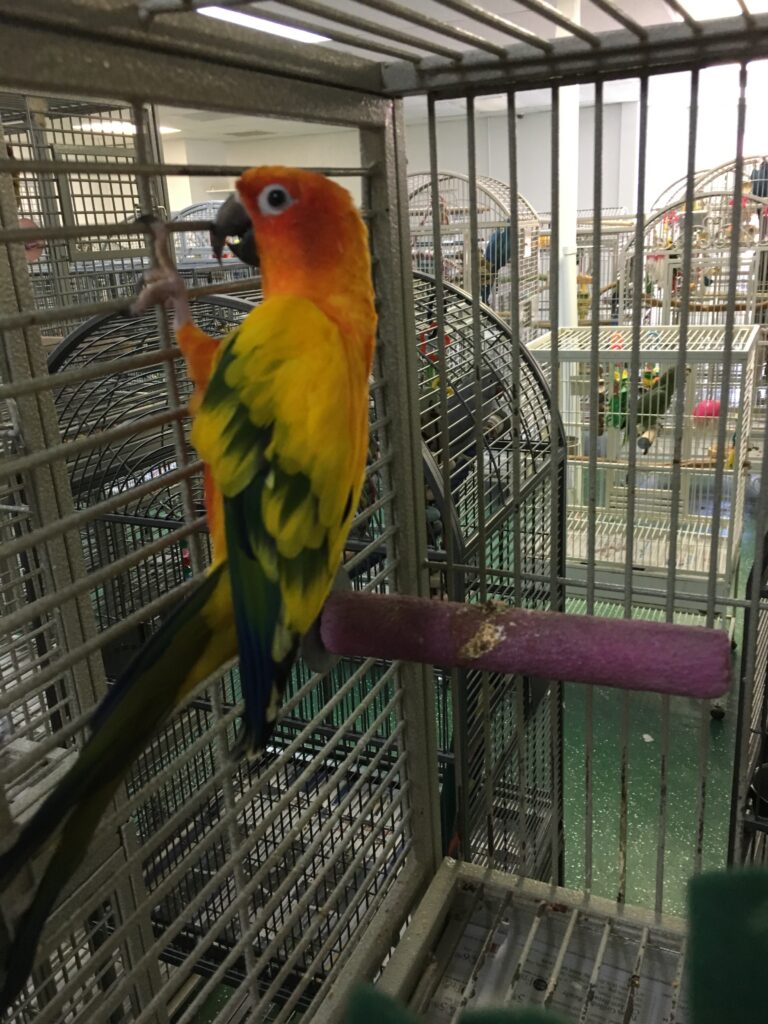

How to Keep Your Conure Healthy, Happy and Safe!
- Give lots of attention (with leadership).
- Feed a fresh, high quality, toxin-free formulated diet with daily
supplementation of chopped vegetables and fruit according to the manufacturer’s recommendations. - Grit is probably not necessary with modern captive diets.
- Provide clean, fresh, uncontaminated water (try using water bottles).
- Remove and replace food and water containers twice daily to maximize activity in a healthy bird.
- Provide occasional opportunity for bath, shower, or misting (at least weekly).
- Avoid spraying house with insecticides.
[save_as_pdf_pdfcrowd]

